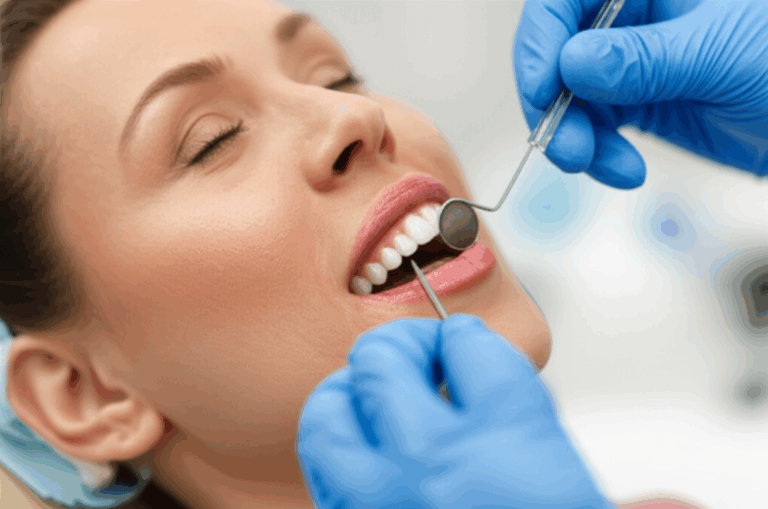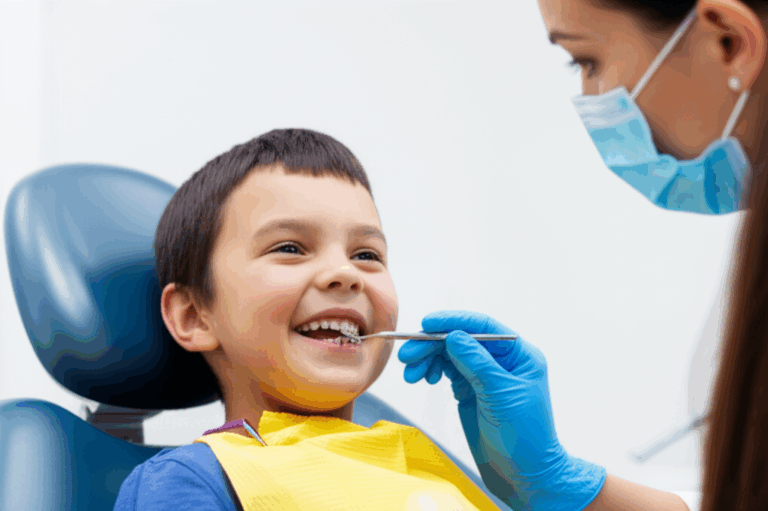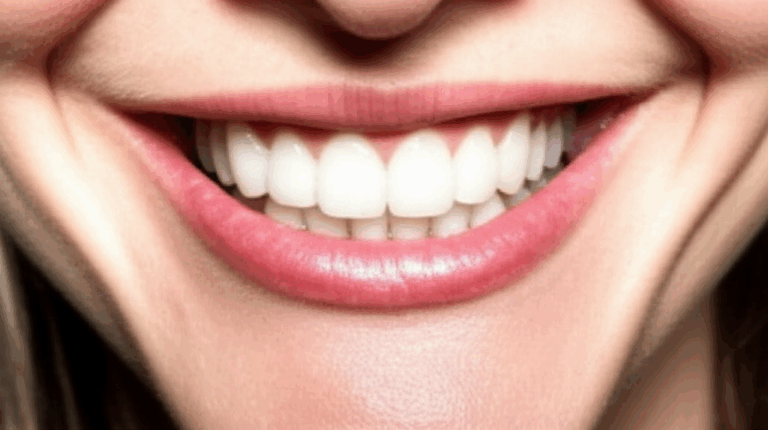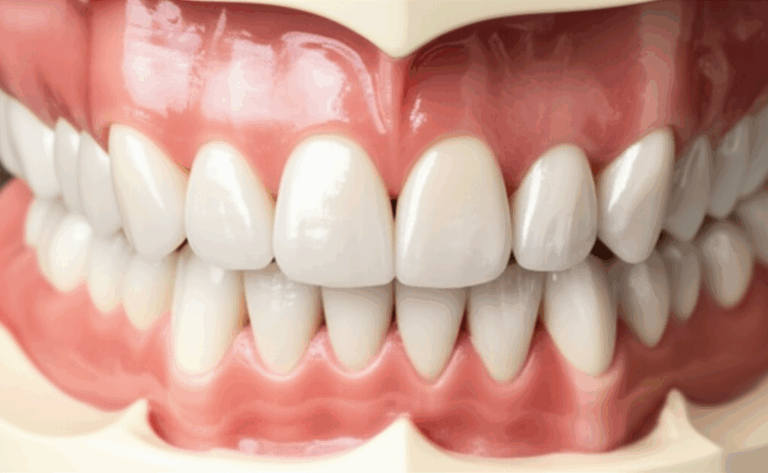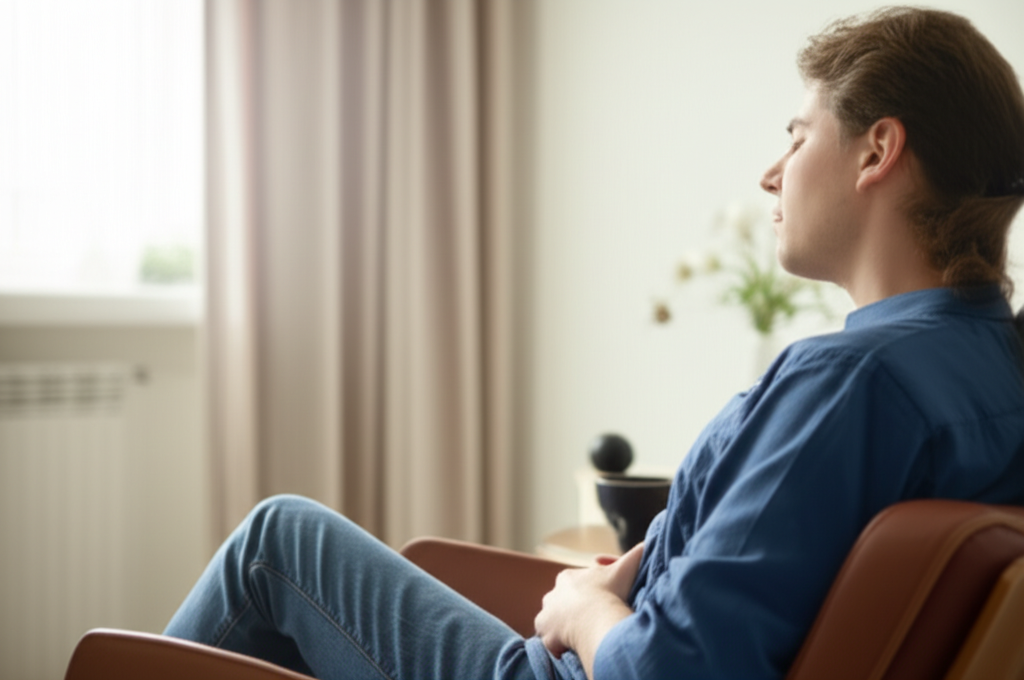
How to Calm Nerves Before the Dentist: My Tried-and-True Guide for Dental Anxiety
Table of Contents
- Introduction: My Own Story With Dental Anxiety
- Understanding Dental Anxiety: Why We Get Scared
- Common Triggers I’ve Noticed
- Is It Anxiety or Dental Phobia?
- How I Prepare Before a Dental Appointment
- Strategic Planning
- Mental Preparation
- Simple Logistics That Help
- Appointment Day: My Favorite Calming Techniques
- Setting the Right Mood at Home
- Surviving the Waiting Room
- Staying Calm in the Dental Chair: Tactics That Work
- The Power of Communication
- Sensory Tricks and Comfort Items
- Mind-Body Connection: Staying Present
- Professional Help: When Self-Help Isn’t Enough
- Sedation Dentistry Options
- Therapeutic Approaches
- Building A Trusting Relationship With Your Dentist
- Useful Facts, Stats, and Case Studies to Know
- Conclusion: Your Path to a Calm Dental Experience
Introduction: My Own Story With Dental Anxiety
Let’s just be honest—I used to be someone who hated going to the dentist. My stomach would get all knotted up even if all I had was a simple cleaning. I’d try to keep myself busy or think up a reason to cancel last minute. Sound like you?
Dental anxiety is a lot more common than many people think. Research shows about one in three adults feel pretty nervous about seeing the dentist. About one in eight actually stay away from the dentist because of fear. You’re definitely not weird, and it’s totally fine to want some tips to help you get through it.
I wrote this because I’ve been through it all—and I’ve found things that really help. I’ll share my best tips, from easy breathing tricks to professional tools, that helped me go from super-nervous to actually being okay with regular dentist visits.
Understanding Dental Anxiety: Why We Get Scared
For me, my fear started after I got a painful filling as a teen. Even though dentist offices are way better now, sometimes those scary memories—or stories you hear from friends—just stick with you.
Common Triggers I’ve Noticed
After talking with friends and reading up a bit, I’ve noticed these things set off anxiety for a lot of people:
- Scared of pain: Even the thought of needles or the drill can make people panic.
- Feeling not in control: Lying flat with your mouth open doesn’t exactly put you in charge.
- Worried about your mouth: Afraid the dentist will judge you for your teeth or habits.
- Bad past experiences: Even just one rough visit can stick in your mind.
- Worried about gagging: Especially during x-rays and impressions.
- Noises and smells: That sound of the drill… say no more.
If you feel any of this, you’re really not alone.
Is It Anxiety or Dental Phobia?
It took me a while to get the difference myself. A little bit of worry is normal, but a dental phobia means just thinking about the dentist makes you sweat, feel dizzy, or have a panic attack. If you put off dental visits so much that your teeth suffer, it might be time to get more help.
How I Prepare Before a Dental Appointment
The big trick I learned: most of the calming part happens before you even show up at the dental office. If you prep right, being in the chair gets a whole lot easier.
Strategic Planning
Find the Right Dentist
Don’t just take the first one you see. Look for dentists that mention “gentle care,” “relaxed visits,” or “sedation dentistry.” When I found a dentist who really listened and explained everything, my nerves seriously chilled out.
Book the Right Time
I always try for the first appointment of the day. That way, I don’t spend all day thinking about it. Busy times (like after work) can make waiting rooms loud and stressful. A quiet time just feels better.
Meet First If You Can
You can ask to just meet your dentist before any work is done, just to talk about your worries. Most dentists are glad when you’re honest. They can help come up with a plan just for you.
Mental Preparation
Picture Things Going Well
Sounds a bit silly, but when I picture myself being calm and handling things, it actually works. I like to repeat, “I got this. I’m safe. My dentist is here for me.”
Try Mindfulness or Meditation
Even just a few minutes a day of simple breathing or a calming app helps before your visit. There are free apps that walk you through easy, short exercises.
Don’t Look Up Scary Stories
I used to Google horror stories at 2 a.m. It always made things worse. Now, I just learn what I really need to know about my treatment, and ignore the scary stuff.
Simple Logistics That Help
Double-Check Your Appointment
Nothing sets off my nerves like not being sure of my time or date. A quick call or email to confirm helps.
Leave for the Dentist Early
Rushing always makes me more stressed. I like to leave lots of time so I don’t feel panicked.
Eat a Little Something
I used to not eat because of nerves, then I’d feel even more weird in the chair. Now I eat a small, healthy snack just so my blood sugar stays steady.
Appointment Day: My Favorite Calming Techniques
Sometimes, even if I prepare, there’s a wave of nerves when the day comes. Over time, I built my own anxiety-busting routine.
Setting the Right Mood at Home
Clothes That Feel Good
I stopped worrying about how I look. Wearing something soft and comfy helps me relax before I even leave home.
Music and Podcasts
I listen to music or a fun podcast on the drive. It keeps my mind busy and not focused on my worries. Sometimes, I bring headphones to the dentist, too.
Soothing Scents
A touch of lavender or chamomile (on a tissue, my wrist, or a little roller) helps me calm down.
Surviving the Waiting Room
Breathing: 4-7-8 Trick
Breathe in for four counts, hold for seven, out for eight. I just repeat it until I feel a little calmer.
Tense and Relax Muscles
I start with my toes, then move up—squeezing and letting go. I do this quietly in my chair and it really helps.
Distract Yourself
I bring a good book, a game on my phone, or I look at happy photos for a few minutes.
Bring Someone With You
If you can, have a friend come along. Even if they just wait outside, it really helps lower the nerves.
Staying Calm in the Dental Chair: Tactics That Work
Here’s the part we all dread most: the appointment! Here’s how I keep it together and don’t let my nerves take over.
The Power of Communication
Have a “Stop” Sign
First thing, agree on a sign (I just raise my hand) to show your dentist you need a break. Just knowing I can pause makes me feel much better.
Say What You’re Scared Of
I always start with, “I get really nervous—is it okay if you explain things as you go?” Most dentists thank me for being honest, and they work with me.
Ask Questions
Don’t keep your mouth shut about what you want to know! Just asking, “What’s next?” or “How long will this be?” makes things less scary.
Sensory Tricks and Comfort Items
Headphones for Music
Nothing blocks out the drill better than headphones with some good music or a story.
Eye Cover or Sunglasses
Dental lights are super bright. Most offices have shades, but you can also bring your own mask or dark glasses.
Comfort Touches
A small blanket, stress ball, or anything soft to hold makes me feel safer.
Mind-Body Connection: Staying Present
Watch Your Breathing
No special trick needed. I just count my breaths and it keeps me calm.
Imagine a Good Place
I pretend I’m at the beach or in the woods—anything that feels calm and safe.
Wiggle Your Toes
This one’s easy—wiggling my toes takes my mind off my mouth for a second.
Professional Help: When Self-Help Isn’t Enough
If you try all of this and you still freeze up at the dentist, don’t give up. I was really stuck at one point, but there’s more help out there.
Sedation Dentistry Options
- Laughing Gas (Nitrous Oxide):
You stay awake but feel way more relaxed, and you’re okay to drive home soon after.
- Oral Sedation:
You take a pill (like Valium) and feel calm, and probably won’t remember much from your visit. You’ll need a ride home.
- IV Sedation:
The dentist gives medicine in your arm so you’re deeply relaxed (but awake). You probably won’t remember much. You need someone to take you home.
- General Anesthesia:
This is for big fears or big treatments. You’re totally asleep and watched by a pro the whole time.
Ask your dentist if these are right for you. They really can help even the most nervous patients get the care they need.
Therapeutic Approaches
- CBT (Cognitive Behavioral Therapy):
I saw a therapist for a few sessions and learned how to change my thinking around dentist visits.
- Hypnosis:
I gave hypnosis recordings a try before bed. It didn’t make me love the dentist, but it did help me feel less scared.
- Talking to a Therapist:
Sometimes dentist fears are tied to other worries or past stuff. A counselor can help you work through it.
Building A Trusting Relationship With Your Dentist
The biggest thing that worked for me? Finding a dentist who just “got it.” Here’s what I want now:
- Kindness—not someone who is in a hurry or acts annoyed.
- Talking things through—they explain every part, and check if I’m okay.
- Gentle tools—things like numbing gels and better ways to avoid pain.
- Take it slow—my first visit was just a hello and cleaning before we did anything big.
- Go often—the more I go, the easier it all gets. Each visit is a little less scary.
For special dental work, having a dentist who works with a high-quality dental ceramics lab, a crown and bridge lab, or a trusted digital dental lab can really make your results (and your comfort) way better.
Useful Facts, Stats, and Case Studies to Know
It helps to know you’re not weird or alone—lots of people go through this!
- Around 36% of adults have dental anxiety, and about 12% have really strong fears.
- If you avoid the dentist, you’re nearly four times more likely to have sore gums or cavities.
- Things like laughing gas, oral pills, and IV sedation all help people finish their treatment.
- Simple mental tricks—like CBT, listening to music, or playing a game—can cut anxiety by around 30%.
- Feeling like your dentist listens and having a “stop” sign really lowers fear.
Some offices now use digital labs that help diagnose and make stuff for your teeth much faster, which can mean you have to go back less often and don’t have to worry as long.
Conclusion: Your Path to a Calm Dental Experience
If you remember just one thing: dental anxiety isn’t weird, and there are real ways to feel better.
It started for me with learning to be honest, getting ready mentally and with a plan, and letting myself ask for help. Finding a dentist who cared really changed things for me. Now, check-ups don’t even scare me much anymore.
You can do this too—maybe just try a little breathing exercise today, or call a dentist who says they help nervous folks. Your smile—and your peace—are worth every bit of this.
Further Reading:
If you need something like a denture or a retainer, look for clinics that use a good lab for those things too. They can make the results better and the visit easier.
Your journey to worry-free dentist visits starts here. I did it, and you can too.

